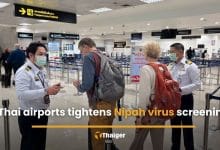Thailand tightens ‘feathered’ measures to curb avian flu outbreak

Thailand’s Ministry of Public Health is tightening measures to prevent the spread of avian flu. Hospitals near the Cambodian border are on high alert following Cambodia’s report of its seventh H5N1 case this year.
The Ministry of Public Health, led by Opas Karnkawinpong, received an epidemiological report from the Sa Kaeo Provincial Health Office. The latest case involves a five year old girl from Takeo province, southeastern Cambodia, who was confirmed with the H5N1 virus.
This marks the seventh avian influenza case in Cambodia this year. The girl lives with her three year old brother, who was the sixth case and also tested positive earlier. Both children had a history of contact with sick and dead chickens that their family had prepared for food, leading to respiratory infection from the virus.
The primary observation indicates that high-risk groups for avian influenza in Cambodia are primarily children, with six cases involving children and only one adult. All patients had a history of contact with sick or dead poultry.
Opas stated that all provincial health offices along the Cambodian border, particularly in Sa Kaeo, which borders Takeo Province, have collaborated with Thai-Cambodian border disease control checkpoints to intensify surveillance for avian influenza.
Hospitals in every province have been instructed to closely monitor patients with pneumonia symptoms, especially those with a history of contact with poultry or unexplained pneumonia cases involving multiple family members.
To ensure timely treatment, hospitals are screening and isolating suspected avian flu cases. Additionally, collaboration with provincial livestock offices is ongoing to monitor sick or dead poultry, regardless of the cause, to prevent the virus from spreading to other animals or humans.
The public is urged to avoid contact with sick or dead poultry. In areas experiencing outbreaks, it is crucial to wear masks and gloves when handling poultry. Importantly, do not cook or feed dead poultry to animals.
Frequent hand washing with soap and water after handling poultry is essential. Individuals, especially those working with poultry such as ducks and chickens, or those in poultry transport, slaughtering, or sales, should seek medical attention if they experience fever or cough symptoms and report any contact with sick or dead poultry, reported KhaoSod.
Latest Thailand News
Follow The Thaiger on Google News:


























